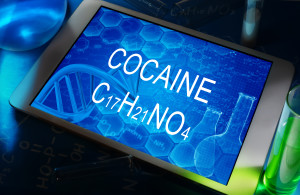 Cocaine addiction is extremely dangerous and addictive. Cocaine is a powerful stimulant that affects the central nervous system. It increases the dopamine production in your brain, which is the neurotransmitter that manages the feeling of pleasure. Regular use of cocaine causes cravings and eventually addiction. The drug is one of the most addictive stimulants available today, and treatment should be started immediately. However, it can be difficult to determine whether or not your loved one is addicted.
Cocaine addiction is extremely dangerous and addictive. Cocaine is a powerful stimulant that affects the central nervous system. It increases the dopamine production in your brain, which is the neurotransmitter that manages the feeling of pleasure. Regular use of cocaine causes cravings and eventually addiction. The drug is one of the most addictive stimulants available today, and treatment should be started immediately. However, it can be difficult to determine whether or not your loved one is addicted.
There are five major signs that you are addicted to cocaine. When you continually use cocaine, you have to begin increasing your dosage to create the same feeling of euphoria and elation you felt when you first used the drug. This is called tolerance, and addicts are especially likely to develop tolerance to cocaine. If you experience feelings of agitation, restlessness, or depression when not using the drug, you may be experiencing withdrawal symptoms that accompany addiction. Lack of control is common in addicts. Although they possess the desire to stop using, they lack the ability to actually quit. In addition, obsessive thinking is indicative of addiction to cocaine. Some addicts spend most of their days thinking or trying to obtain cocaine. The powerful stimulant controls most of their thoughts and time. Lastly, a change in priority of social, occupational, or recreational activities can mean addiction. If you don’t enjoy activities you once did or fail to participate, you may be addicted.
Although these main signs of addiction are common and can be helpful in determining whether or not addiction has taken hold, there are other signs that can indicate addiction to cocaine. If they continue to use the drug despite knowledge of the damage it causes to their bodies and lives, they may be addicted. They may also experience restlessness, nervousness, depression, mood swings, weight loss, amnesia, isolation, financial problems, new friends and environments, poor hygiene, and fatigue. The most important way you can help them fight addiction is to not enable them. Do not give them extra money, provide transportation, or give them a place to stay. Although it may be difficult to stay strong, you cannot indulge in their disease and hurtful lifestyle.
Once you establish that your loved one is addicted to cocaine, you should plan an intervention. Some people find it helpful to bring in a specialist to guide you through the process, giving advice on who should be present to best convince the addict that recovery is necessary and provide treatment options. No matter how you plan the intervention, it should take place in a safe environment where the addict will not feel like they are being attacked. Inpatient treatment can then provide professional help in a trained facility for about 3-6 months, often followed by support groups and follow-up therapy to prevent therapy. Outpatient therapy can provide support and address triggers that may cause a relapse, while giving the addict comfort in their own home or safe place.
LEAD Recovery Center can help you through your addiction treatment and provide a safe environment for your recovery process. No one needs to struggle through recovery on their own. LEAD can help you figure out the best treatment plan for your individual needs. Call (800) 380-0012 for information on how to begin your recovery process today!


